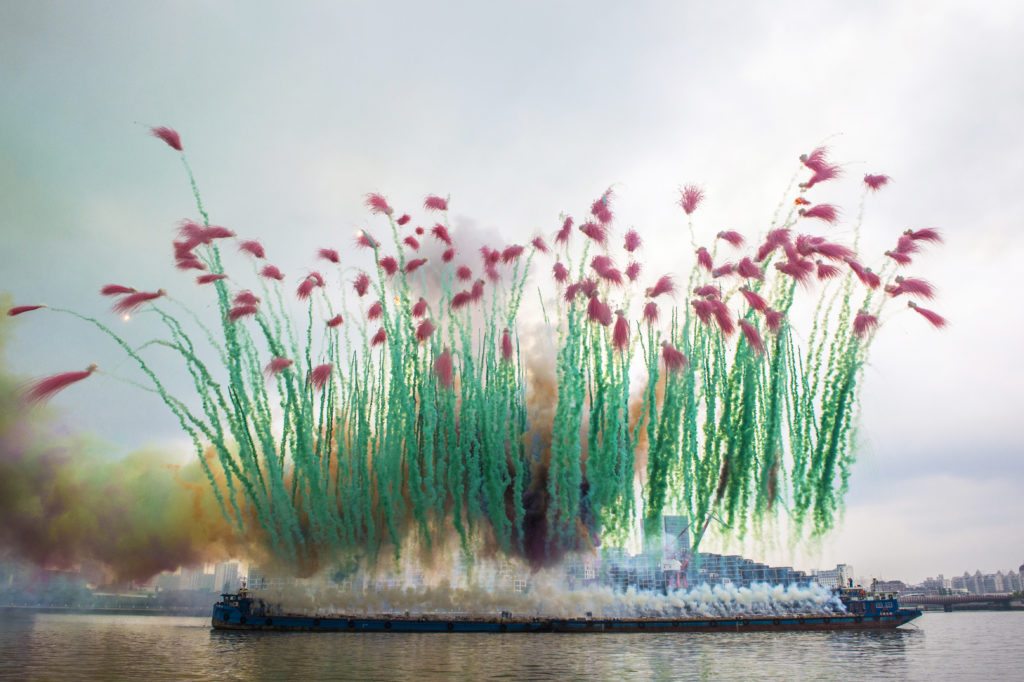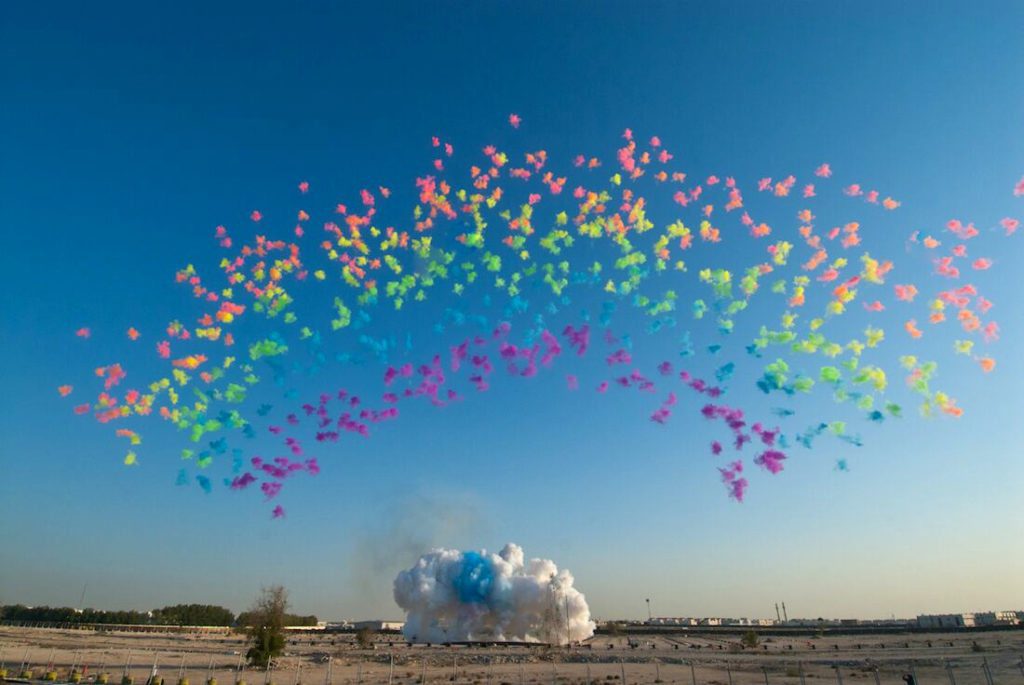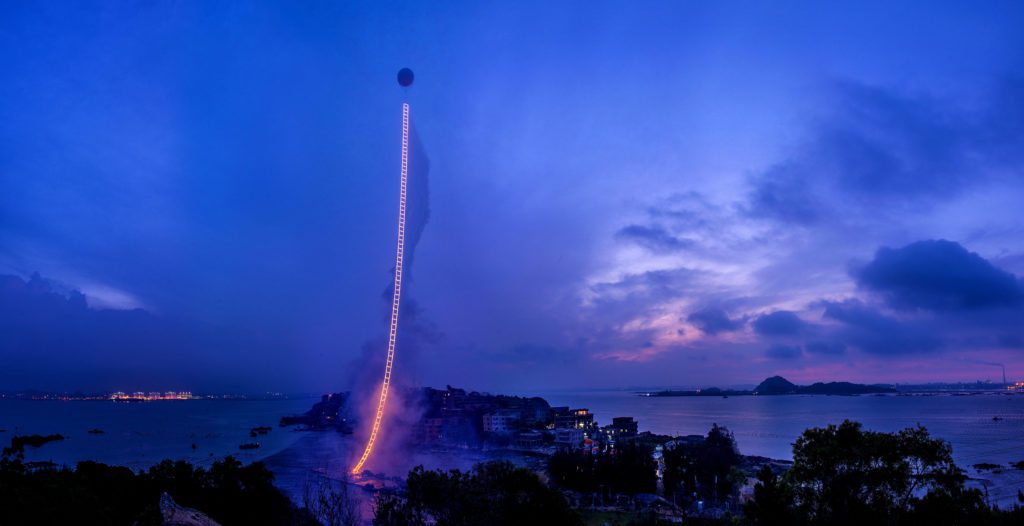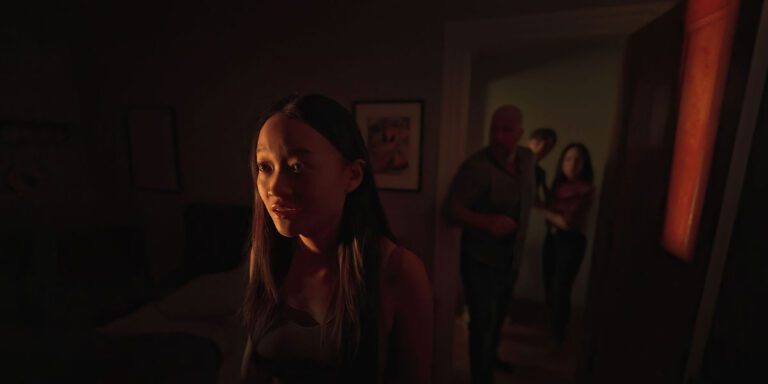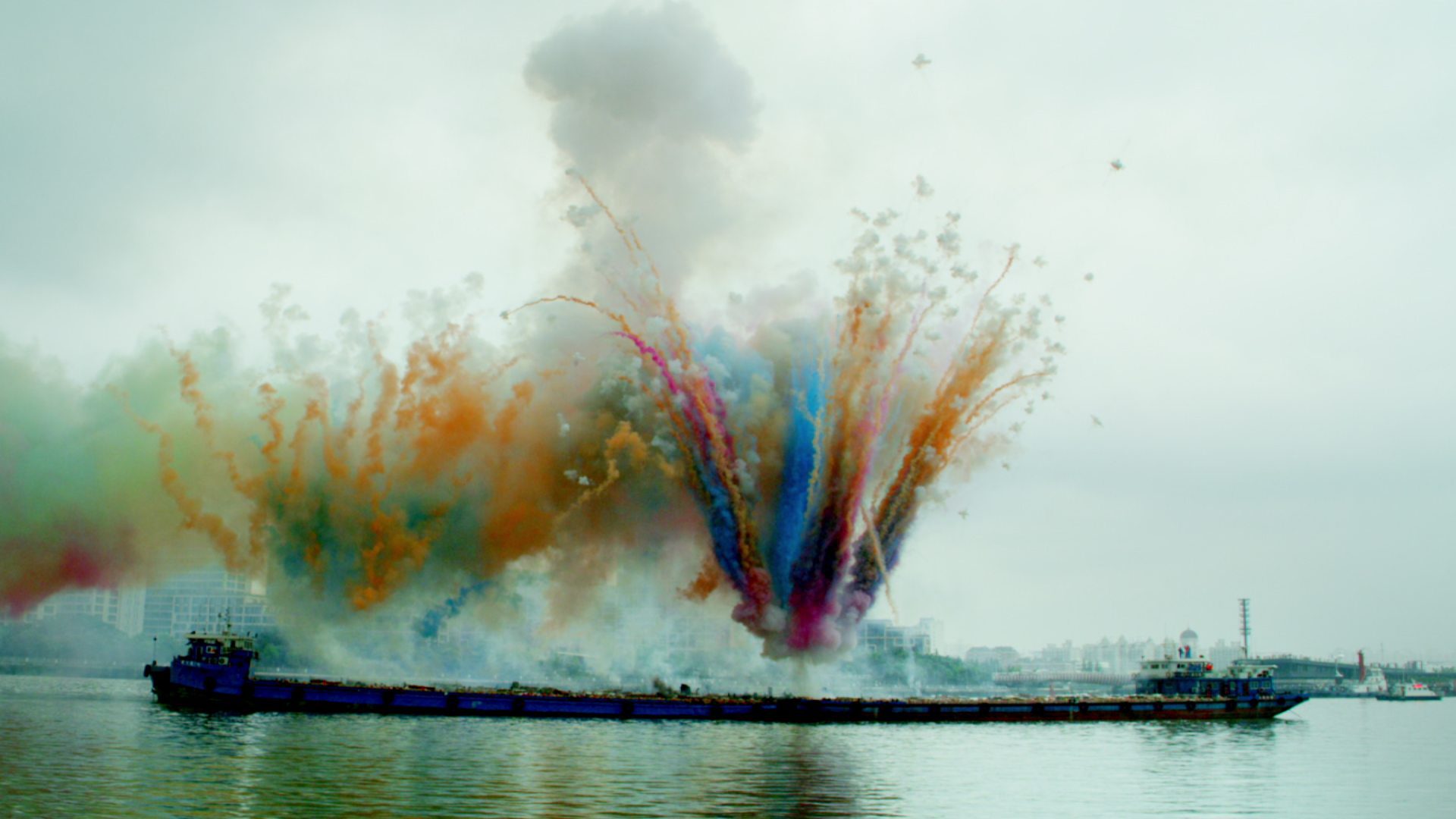
Fire and gunpowder may seem like strange media for an artist, but Cai Guo-Qiang has mastered making art out of such ephemeral and temporary material. The new Netflix documentary Sky Ladder: The Art of Cai Guo-Qiang offers us a chance to see some of the beautiful and unusual installations he has done and get some insight into his creative process.
Perhaps you saw his work in the fireworks of the Opening Ceremonies for the 2008 Beijing Olympics. Fireworks have always been an important part of Chinese culture. (They were, after all, invented in China.) Cai finds incredible ways to use these materials. He has done art works in many places around the world?often one-off installations. However, that means that his art works are here and gone in a very short time. That makes this film all the more important because it is the only chance many people will have to see his art.
Much of the film deals with his efforts to create a ?sky ladder?, a five hundred meter long ladder of fire going into the heavens. Part of his vision is that this is a way of joining the earth to the cosmos. He has been trying to do this for many years. His first attempt was planned for late 2001 in Shanghai, but was cancelled after 9/11 over concerns around terrorism. He later tried in Los Angeles, but that was aborted because of worries about wildfires. Finally he wants to do it near his hometown of Quangzhou, where is 100 year old grandmother lived. A work of this scale is challenging in many ways.
Much of his work happens in nature. As a result it has a certain environmental sensibility. He strives to connect his work with the natural world he sets the work in. He often uses biodegradable powders to make the smoky clouds that are a key part of his works. That connection he tries to make with the world also carries a spiritual aspect. That is especially true in his sky ladder. This is not designed to be a way of getting to heaven, but to serve as a visual image that this world is connected to a much wider existence.
As a Chinese artist, there is also the difficulty of using art to challenge the establishment and how that is different than the entertainment that he is often called on to create for the Chinese government (such as at the Olympics). There is even a brief appearance in the film by filmmaker Zhang Yimou (who was also a key artistic player in the 2008 Olympics) discussing the struggle for Chinese artists to balance what they want to do and what they can do.
Art is always a subjective experience. No doubt some will see the momentary creations that Cai makes and consider it just an amusement. Others will have a much deeper experience that will fuel their imaginations and help them see the world in a new way.
Photos courtesy of Cai Studios/Netflix

